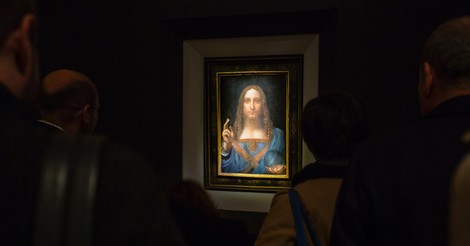Your podcast discovery platform
Curious minds select the most fascinating podcasts from around the world. Discover hand-piqd audio recommendations on your favorite topics.

piqer for: Global finds Health and Sanity Doing Good
Bangalore-based Rashmi Vasudeva's journalism has appeared in many Indian and international publications over the past decade. A features writer with over nine years of experience heading a health and fitness supplement in a mainstream Indian newspaper, her niche areas include health, wellness, fitness, food, nutrition and Indian classical Arts.
Her articles have appeared in various publications including Mint-Wall Street Journal, The Hindu, Deccan Herald (mainstream South Indian newspaper), Smart Life (Health magazine from the Malayala Manorama Group of publications), YourStory (India's media technology platform for entrepreneurs), Avantika (a noir arts and theatre magazine), ZDF (a German public broadcasting company) and others.
In 2006, she was awarded the British Print-Chevening scholarship to pursue a short-term course in new-age journalism at the University of Westminster, U.K. With a double Masters in Globalisation and Media Studies from Aarhus Universitet (Denmark), University of Amsterdam and Swansea University in Wales, U.K., she has also dabbled in academics, travel writing and socio-cultural studies. Mother to a frisky toddler, she hums 'wheels on the bus' while working and keeps a beady eye on the aforementioned toddler's antics.
The Desire Debate: Is The Pleasure Of Enjoying Art Different From Sexual Pleasure?
I first read about orgasm from pleasure associated with art in a trashy novel of the nineties in which the heroine orgasms every time she is under the arc lights. I then dismissed it (like you are probably doing now) as the hyperbole of a romance writer. But turns out, she was not far from the truth. It is possible to experience orgasmic pleasure from non-sexual activities. People have reported having orgasms from eating a ripe tomato; as well as from walking barefoot on wood. The whys remain a mystery.
This is just a small part of the captivating debate that has broken out online, a discussion that has been extremely entertaining to follow from the sidelines. Psychologists and neurologists are taking sides on whether pleasure we get from art is different from the pleasure we obtain from sex or chocolate or even drugs.
It all began when neuroscientist Julia F. Christensen published a paper arguing that pleasure induced by art is different from other pleasures. She said since we have all turned into pleasure junkies waiting for our next dopamine shot from social media and sugar, art could be a solution to the “detrimental effects” caused by such dysfunctional urges.
Her fellow pleasure researchers published a rebuttal to her paper last month arguing that there is plenty of evidence to show that the pleasure of, say, looking at a Monet painting is no different in “genesis and function” to the pleasure of sex or food. Others defended Christensen by pointing out the disputes in the understanding of neural processes that trigger pleasure in our brain.
This article does a good job of presenting both sides of the argument (with reproduction of the actual tweets and an interesting video that records people’s responses to Da Vinci’s Salvator Mundi).
And the last word on whether pleasure derived from art is different from that of sex or food? Well, it seems the scientists are still doing the pleasurable work of finding the answer.
